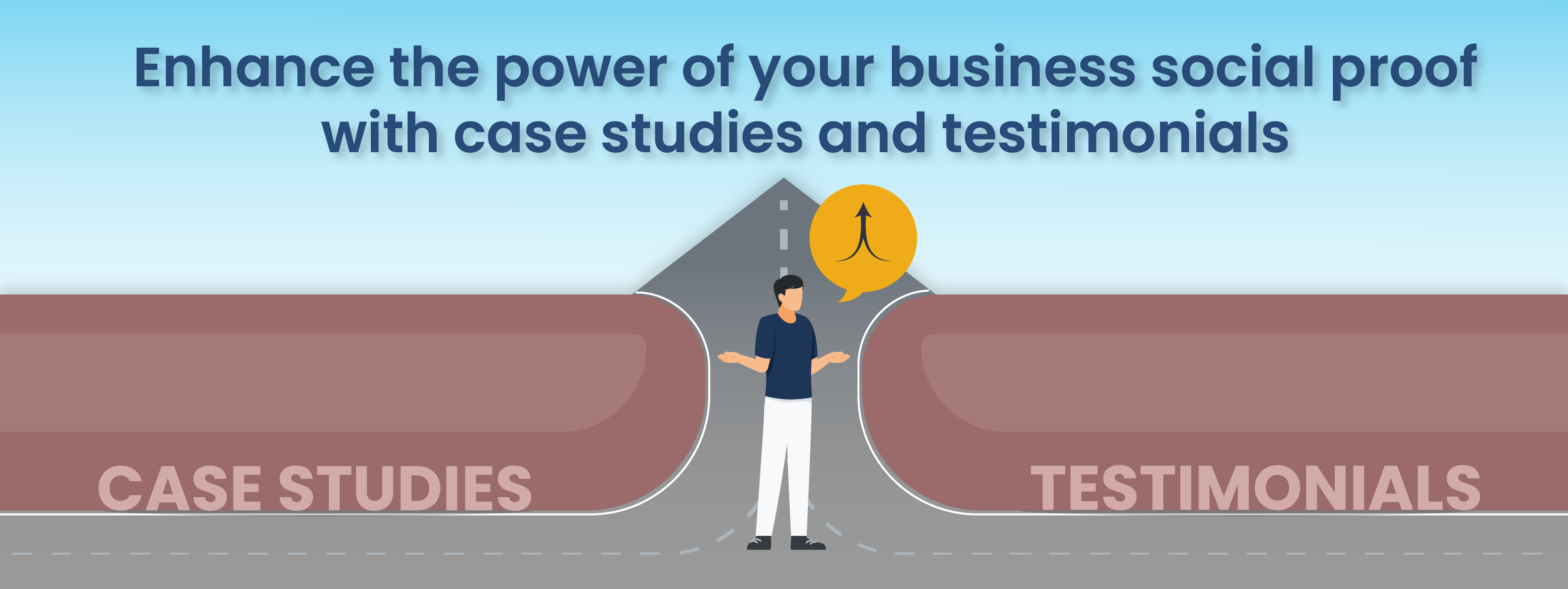In today’s competitive business landscape, the importance of credibility for business success cannot be overstated. One way to prove your authenticity to customers is through case studies and testimonials, but which is better?
Example
A supply chain consulting firm in Australia was bidding on a major contract with a large manufacturing company. The decision-makers were impressed with the firm’s proposal and the positive testimonials from their previous clients. However, when they asked for case studies to demonstrate the firm’s expertise in solving complex supply chain challenges, the firm was unable to provide any. Despite their attempts to explain their approach and past successes, the lack of case studies ultimately cost them the contract.
This highlights the importance of understanding the differences between case studies and testimonials.
As per Forbes, nearly 50% of SaaS companies say case studies drive sales1.
So, does this mean case studies are more effective than testimonials? Keep reading this blog to know.
The above example highlights the importance of case studies in establishing credibility and showcasing a company’s abilities. However, it is important to note that the first thing a vast majority of people look for while researching a product is testimonials.
Testimonials are valuable as they provide a snapshot of a client’s experience.
Case studies, on the other hand, offer a more in-depth look at a company’s approach, the challenges faced, and the results achieved. They allow potential clients to see the company’s problem-solving skills and ability to deliver results in action.
Now, let’s explore case studies and testimonials further.
Understanding Case Studies
A case study is a detailed, in-depth analysis of a specific project that a company has implemented. It typically includes an overview of the project, challenges, solutions implemented, and outcomes.
Case studies can be particularly effective for companies that offer complex or technical products or services. They help potential customers understand the roadmap a business uses to solve difficult problems.
Example
A software company had trouble convincing new clients to finalize deals. They struggled to showcase their expertise despite having experienced developers and successful projects.
To address this, they went back to the successful projects they had implemented and created case studies. These case studies contained the problems and challenges faced by their customers, detailed approaches to the solution, results as well as benefits.
They then displayed these case studies on their website and added them to marketing and sales materials. This generated interest among their customers leading to more deal closures.
Here are the key components of an effective case study:
- A clear and concise overview of the project.
- A description of the challenges and the solutions implemented.
- Measurable results that show the value provided.
- Visuals or graphics to illustrate the project and the results.
Understanding Testimonials
A testimonial is a statement or a quote from a satisfied customer highlighting their experience. By displaying positive feedback from happy customers, businesses can reassure potential customers and encourage them to sign a deal, take up a service, or make a purchase.
The key characteristics of impactful testimonials are:
- Authenticity, as testimonials, should come from customers who have done business with you.
- Relevancy to the product or service that you are promoting.
- Specific details to make it more compelling.
- Credibility and trustworthiness of the person giving the testimonial.
Example
Maya and Anna run a beauty salon and are considering purchasing a new hair growth product SilkyHead, to use and sell in their salons. They are not very sure of the product since it is relatively new. They are also confused due to the numerous options available in the market.
They look up the testimonials and find customers sharing their positive experiences with SilkyHead. The testimonials highlight the positive effects – how it gave them stronger, longer, and radiant hair. Maya and Anna were convinced to buy the product because of these testimonials.
Specific details in testimonials help build trust for the product, ultimately influencing potential customers to make a purchase.
Benefits of Case Studies and Testimonials
There are a lot of advantages that come with case studies and testimonials, such as:
- Builds trust with potential customers.
- Helps prove expertise.
- Boosts customer engagement and brand awareness.
- Differentiates your company from your competitors.
- Promotes lead generation and sales.
- Provides social proof that other people have had success with your products or services.
So, what are the factors to consider when deciding which is better for your business – a case study or a testimonial?
- Nature of your products or services: Case studies can be more effective if you offer complex or technical products or services. For example, a CRM product implementation. Testimonials can be more effective if you offer consumer-focused products or services. For example, a new series of mobile phones.
- The buying stage: Case studies can be particularly effective in the middle of the buying process when potential customers are evaluating their options and looking for solutions to their problems. Testimonials can be effective at the beginning of the buying process when potential customers are looking for information and trying to establish trust.
- Your resources: Case studies can be time-consuming and resource-intensive to create. If you don’t have the resources to create case studies, testimonials may be a more viable option.
So now we come back to the question of which method is better for your business – case studies or testimonials. Actually both!
Did you know? 92% of customers read reviews and testimonials before making a purchase, while case studies tell success stories and are educational, reports Medium2.
Be it a good marketing or sales strategy, both case studies and testimonials serve as powerful tools. Ensure to write detailed case studies that showcase your expertise in solving complex business problems. Add testimonials to provide social proof and build customer confidence. By using both, you can create a comprehensive and persuasive message that resonates with potential customers.
Want to look at Vtiger’s case studies? Check out what our happy customers have to say!

- https://www.forbes.com/sites/forbesbusinesscouncil/2022/09/28/the-importance-of-multi-format-case-studies-in-marketing/?sh=6b2a1de41ee4
- https://everlytic.medium.com/how-case-studies-testimonials-impact-customer-decisions-e718d560b66e



